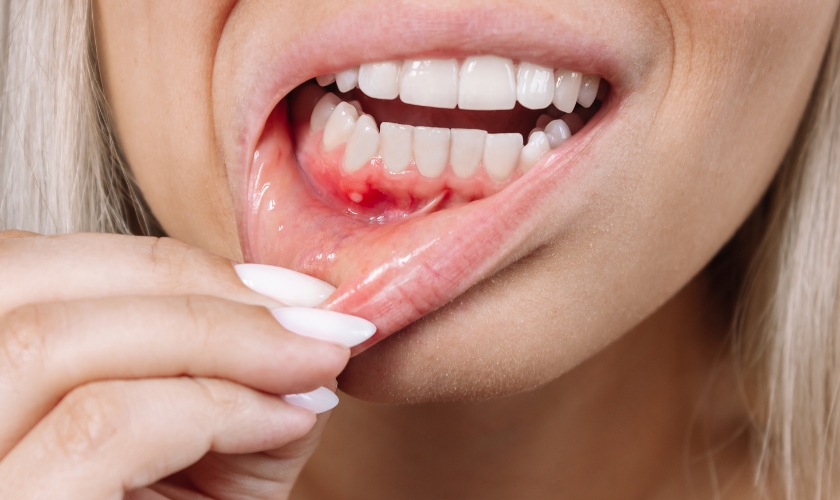Know The Different Stages Of Gum Disease

Why Are Cosmetic Dental Treatments So Popular?
March 3, 2022
6 Common Dental Emergency Situations That You Can Face
March 18, 2022Periodontal disease affects almost half of all adults in the United States. It can lead to tooth loss, the need for dentures, and a slew of other health problems. Regardless of how common the condition is said to be, it is critical that gum problems should be treated properly because of their potential severity. It has no age or gender restrictions and can have an impact on anyone of any age or gender.
As mentioned in the title, in this blog, we are going to discuss the stages of gum disease. But, before delving into the topic, you should be aware of what it is.
What Is Gum Disease?
Periodontal disease is a chronic gum infection. It affects not just the gums but also the jawbone, causing tooth loss as well as other systemic problems. Periodontal disease develops once plaque has built up and hardened, usually as a result of improper brushing and flossing habits. It has four phases, with only one of them being reversible.
Bacteria are the root causes of periodontal disease. It will develop if plaque and tartar are not removed on a regular basis (via healthy daily flossing and brushing routines, as well as regular professional tooth cleanings). The most important risk factor is smoking, which can make periodontal disease treatment less successful. Diabetes, drugs that restrict the normal flow of saliva, heredity, hormonal changes, and specific illnesses like AIDS are all variables that increase the risk of periodontal disease.
Stages Of Gum Disease
Gingivitis, mild periodontal disease, moderate periodontal disease, and severe periodontal disease are the four phases of periodontal disease.
- Gingivitis – Since it hasn’t yet attacked the bones, gingivitis is the only stage of periodontal disease that can be reversed. Plaque buildup around the teeth causes this condition. At this time, there are only a few indicators, and the majority of them are painless. This is why periodontal disease is so common and dangerous. It is deafeningly quiet until it isn’t. Periodontal disease usually does not make an appearance until the fourth and final stage. Bad breath, swelling and redness of the gums, and bleeding when brushing or flossing are all early warning symptoms to look out for. Gingivitis can be treated and reversed with good general oral hygiene and regular exams.
- Slight Periodontal Disease – The second stage of periodontal disease is mild gum disease. It isn’t reversible but can be controlled. When a patient reaches stage two, the infection has migrated to the bone and is starting to damage it. The bacteria develops and becomes more aggressive, resulting in increased loss of bone. Simple dental hygiene isn’t going to cut it anymore. Increased gum swelling or redness, foul breath, bleeding during flossing and brushing, and probing depths of four to five millimeters are all common signs.
- Moderate Periodontal Disease – The third stage of periodontal disease, like mild periodontal disease, cannot be reversed. The same symptoms as stage two appear at stage three, but probing depths are greater at six to seven millimeters, allowing more germs to damage not just your bones, but also your bloodstream and immune system. Scaling and root planing are used to treat periodontal disease in stages two and three. Scaling and root planing are deep cleaning procedures that remove bacteria deposits that have become embedded in your gums. These stages can lead to bone and tooth loss, gum sensitivity, increased bleeding, and tooth shifting if left untreated.
- Advanced Periodontal Disease – When periodontal disease progresses to its final stage, the infection deepens even more and the bacteria transform into disease-causing bacteria once more. You now have a 50% – 90% chance of losing bone mass. Advanced periodontal disease involves red, inflamed, pus-filled gums, cold sensitivity, increased tooth loosening, painful chewing, and severe halitosis, in addition to bone loss. In order to clean the deep bacteria-filled pockets that have formed, periodontal surgery or periodontal laser therapy is required. If left untreated, stage four periodontal disease causes tooth spacing or gaps, gum recession, the need for dentures, and other major health issues.
You need to know that ignoring a gum disease or periodontal problem for a long time can be the reason for tremendous pain and discomfort. In case you are looking for the best periodontal treatment in Street Olds, Alberta, book an appointment with West Olds Dental today.




